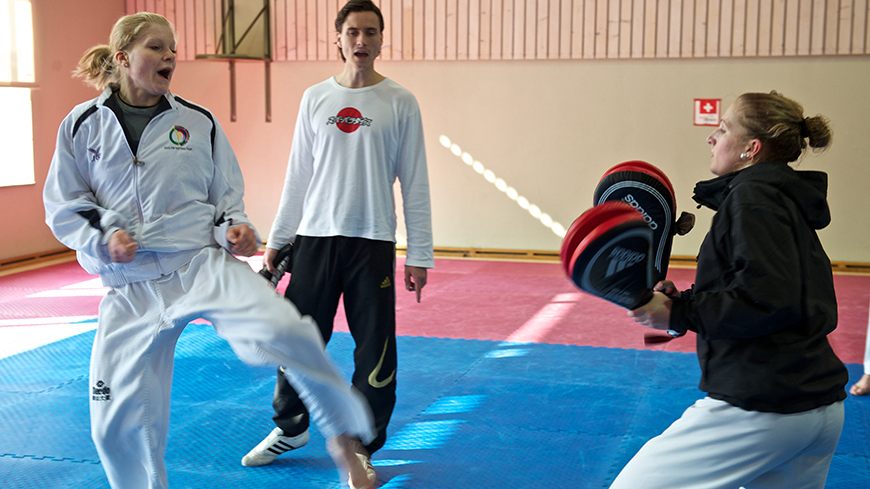Sport

Sport can bring many benefits in relation to health, well-being, learning of new skills and freedom of movement. However, gender inequalities persist in all areas pertaining to sports, namely in access and participation, decision-making, access to resources, salaries, financial incentives, and in relation to appropriate sports facilities, as well as in the organisational cultures of sports bodies. Other relevant issues are the lack of gender awareness of sport-related policies, coaching and training, gender-based violence in sport, and the fact that media coverage of sport often contributes to perpetuate gender stereotypes. More research and data on the topic, integrating a gender mainstreaming approach into all sport-related policies, as well as positive measures to address the many gender gaps in the field are necessary in order to achieve real equality between women and men in and through sport.
Gender mainstreaming and sport at the Council of Europe
In 2015, the Committee of Ministers adopted a comprehensive Recommendation on gender mainstreaming in sport addressed to governments, sports’ organisations, media and other international organisations. The Recommendation provides suggestions to integrate gender equality considerations in legislation; policies and programmes; formal and non-formal physical education; combating gender-based violence; awareness raising and training; data collection and research, monitoring and reporting; non-sexist language, as well as grants, pays, prize money and bonuses.
The Council of Europe Enlarged Partial Agreement on Sport (EPAS) has undertaken several activities on gender equality within its mandate aimed at making sport more ethical, inclusive and safer. These activities included the “Balance in Sports Project” (2016), which lead to the development of tools to implement gender equality as well as the joint European Union and Council of Europe project "ALL IN: Towards gender balance in sport" (1 March 2018-31 October 2019). The “ALL IN: project Towards gender balance” in sport aims at providing support to public authorities and sport organisations when designing and implementing policies and programmes addressing gender inequalities in sport, and when adopting a gender mainstreaming strategy.
Council of Europe's activities and tools
- Data dashboard and Toolkit on gender mainstreaming in sport developed in the framework of the Council of Europe "ALL IN: Towards gender balance in sport" joint EU and Council of Europe project, 2019
- Council of Europe action page on gender equality in sport, 2019
- “Start to talk” project to stop the sexual abuse of girls and boy in sport, including an awareness raising video, 2017
- Balance in Sports Project (BIS). Tools to implement gender equality, Council of Europe Enlarged Partial Agreement on Sport (EPAS), 2016
- Recommendation CM/Rec(2015)2 of the Committee of Ministers to member States on gender mainstreaming in sport, 2015
- Handbook on good practices regarding gender equality in sports, 2011
Other resources
- Portrayal guidelines for gender balanced representation, International Olympic Committee, 2018
- IOC Gender Equality Review Project, International Olympic Committee, 2018
- Gender Equality Leadership Forum, International Olympic Committee, 2018
- Recommendations on Gender Equality in Sport of the Expert Group on Good Governance, European Commission, 2016
- Gender equality in sport - Proposal for strategic actions 2014-2020, European Commission
- Section on sport of the European Institute for Gender Equality gender mainstreaming platform, European Institute for Gender Equality (EIGE)



